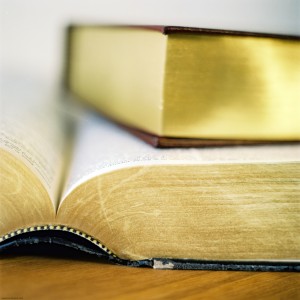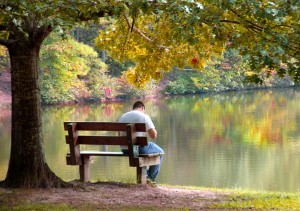 Today, on UNESCO’s World Book Day 2013, it’s incredible to note the 1891 comment of French poet and politician Alphonse de Lamartine presciently describing what he envisioned as the future of writing and reading:
Today, on UNESCO’s World Book Day 2013, it’s incredible to note the 1891 comment of French poet and politician Alphonse de Lamartine presciently describing what he envisioned as the future of writing and reading:
“Thought will spread across the world with the rapidity of light, instantly conceived, instantly written, instantly understood. It will blanket the earth from one pole to the other – sudden, instantaneous, burning with the fervour of the soul from which it burst forth. This will be the reign of the human word in all its plentitude. Thought will not have time to ripen.”
It is hard to imagine a more fitting description of the digital world in which we now live as we consider today’s celebrations of UNESCO’s World Book Day. The date marks the anniversary of the birth of French novelist Druon, the death of Spanish novelist Cervantes and the birth and death of the much celebrated English writer, Shakespeare. Yet book reading – whether digital or print – is at a crossroads, as reading behaviours are increasingly transformed by technology and de Lamartine’s predictions seem ever more pertinent.
We live in a world saturated with information, yet it is in “the quiet spaces opened up by the prolonged, undistracted reading of a book,” as writer Nicholas Carr (author of The Shallows: What the Internet is Doing to our Brains) puts it, that “people made their own associations, drew their own inferences and analogies, fostered their own ideas. They thought deeply as their read deeply.”
 Today, in 2013, where a recent US survey by the federal government found that the average adult spends 18 minutes a day reading but 2.7 hours watching television, reading books can be considered the act of the bold; the counter-cultural; the free-thinkers. And making space for the kind of deep thinking that reading fosters is all the more important when it comes to the most sold, most read book not just of all time, but also consistently of the last 50 years – the Bible.
Today, in 2013, where a recent US survey by the federal government found that the average adult spends 18 minutes a day reading but 2.7 hours watching television, reading books can be considered the act of the bold; the counter-cultural; the free-thinkers. And making space for the kind of deep thinking that reading fosters is all the more important when it comes to the most sold, most read book not just of all time, but also consistently of the last 50 years – the Bible.
‘Bible’ itself actually means ‘book’ or ‘books’, as it is not one, but a collection of dozens of books, covering a range of genres, from poetry, to historical accounts, legal policy, songs and letters. Across cultures, continents and centuries, the richness found in reading the Bible has inspired individuals, from artists to humanitarians. Many have sought to reflect the beauty they find within its pages back to the world, whether that’s John Newton’s composition of ‘Amazing Grace’, or his contemporary William Wilberforce’s lifelong battle to end the slave trade in Britain.
United Bible Societies operates in over 200 countries and territories, working in translation, publishing, distribution and literacy training to ensure the Bible is available and accessible to whomever wishes to read this most unique of books.
Email This Story
Why not send this to a friend?
